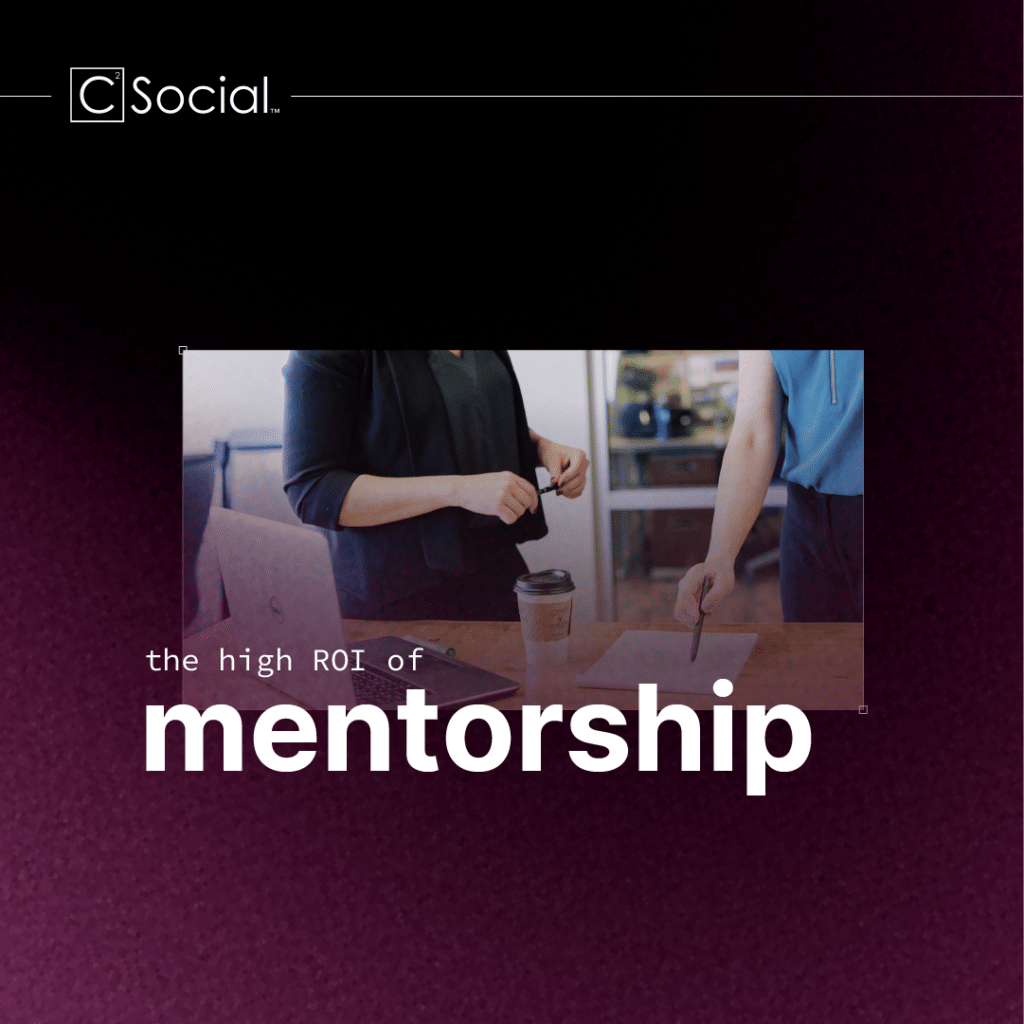By Jessie Davis
Think of your favorite book, movie, or TV show. Is there a relationship between two characters that could be identified as a mentorship? From Harry Potter to 30 Rock to Star Wars – just to name a few – mentors and their protégés show up in a ton of pop culture sources. Created to drive a story, these relationships are reflective of some of the most impactful interactions we have in our daily lives. Whether intentional, like a paid mentor program, or unintentional, like a teacher taking a student under their wing, these relationships happen in the real world. Even in the workplace, coworkers come together when an employee has knowledge that another can learn from. The time and knowledge shared between mentors and mentees is an investment in employee success.

Our very own Kira, Director of Human Resources, has been mentoring her intern, Saede. Knowing they would have great insight, I sat down with Kira and Saede to discuss the experience they’ve had since starting this work relationship in January 2022. For them, it’s been less of a comedic romp or a harrowing adventure in a battle of good versus evil, but more of a mutually rewarding combination of learning and understanding, as well as a celebration of their individual wins.
“Have you seen my schedule?!” Kira exclaimed when I asked her if having Saede in her department had been beneficial. Joking aside, Kira went on to explain that being a mentor isn’t taking away from her other responsibilities. “There’s always training involved with a new hire. Even though I’m training her, we’re still as productive – if not more so – because [Saede’s] taking on some of those duties.” For Kira, the biggest benefit to having a mentee isn’t finding someone to take on a bit of the workload.
“It’s the benefit of helping someone get what they want,” Kira said. Being passionate about helping people build their careers and taking on a mentor role requires flexibility in your own habits. “It also builds your skill sets,” Kira explained. Mentoring means you’re learning how to teach, lead, and “recognize that other people need more organization than you might require in the workplace.” For Kira, this mentorship helped her grow and understand that her preferred style of working isn’t how someone else functions. The work rapport between her and Saede has caused Kira to be “more intentional” with her organization and delegation. “Communication is a two-way street,” Kira explains. A solid mentorship is built on staying in touch and knowing what the other needs and expects from the connection.
Saede, who’d never been a mentee until starting at C Squared Social, said, “[Being mentored is] worth it in the long run, for sure. You’ll gain more knowledge as a mentee.” She went on to say that you learn things in school, but you don’t really know how to apply them until you’re learning hands-on. “You gain experience,” Saede said about her time at C Squared Social with Kira as her mentor. Kira chimed in, saying, “It’s such a valuable experience. And now she can craft the career she wants.”
Ultimately, Kira believes that being a mentor is about wanting to help someone grow. “I see a bright future for [Saede] and to have any amount of influence on that is incredibly rewarding.” Saede explained that she’s gotten more out of her internship than just work experience. When asked what aspect of being mentored she has enjoyed the most, she said, “I think the relationship. It’s not all serious all the time; it’s fun. That’s the best part. I enjoy coming here.”
Mentorships in the workplace, like those in pop culture, often go deeper than just training. It’s a foundation of friendship, highly efficient work relationships, and potentially a networking tool. Even if your mentor moves on in their career, or your apprentice finds a new path, you’ll always have that connection. Having someone to lean on and guide you, or teach you how to be a better leader, is an excellent opportunity to gain more from your professional experience than just meeting the basic criteria of your job.



